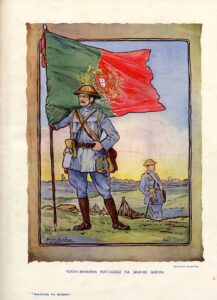By: MARGARET BROWN
Margaret Brown is one of The Resident’s longest standing contributors and has lived in the Algarve for more than 20 years. As well as Point of View, she also writes Country Matters twice a month.
THE RECEIVING of the Holy Spirit by the disciples fifty days after the crucifixion of Christ, later known as Pentecost, brings to an end the Easter Season.
From the 1st Century this has marked the beginning of the universal church of which believers worldwide are, and since that time always have been, a part.
The name describes not so much a gathering together in one place but rather encompasses all constituent members wherever they may be. The period of 34 weeks following Pentecost is called Ordinary time, the name is a derived from the Latin word ‘Ordö’- meaning sequence of events.
Apart from several major feast days such as Trinity, All Saints and Corpus Christi, these eight months of worship are a time of consolidation and examination of our faith, our way of life and above all the retelling of the life and ministry of Christ. Tides of good and evil have washed the shores of human society for as long as mankind has been wandering the earth but it seems that now, more than ever, it is in need of guidance and healing.
Having seen a quote in the press that Portugal is now largely a secular society, the writer could have been commenting on any number of nations in Europe and beyond.
Not only is Islam in the ascendancy by virtue of its aggressive and controlling ethos but also because Muslim children imbibe its laws along with their mothers’ milk.
Christianity being entirely Gospel-founded teaches forgiveness, reconciliation and loving relationships with our neighbours. Some might see this as weakness rather than following in the footsteps of Jesus. In the battleground that is the 21st Century, parents and the Church have much work to do if today’s children are to become the faithful teachers of tomorrow.


















